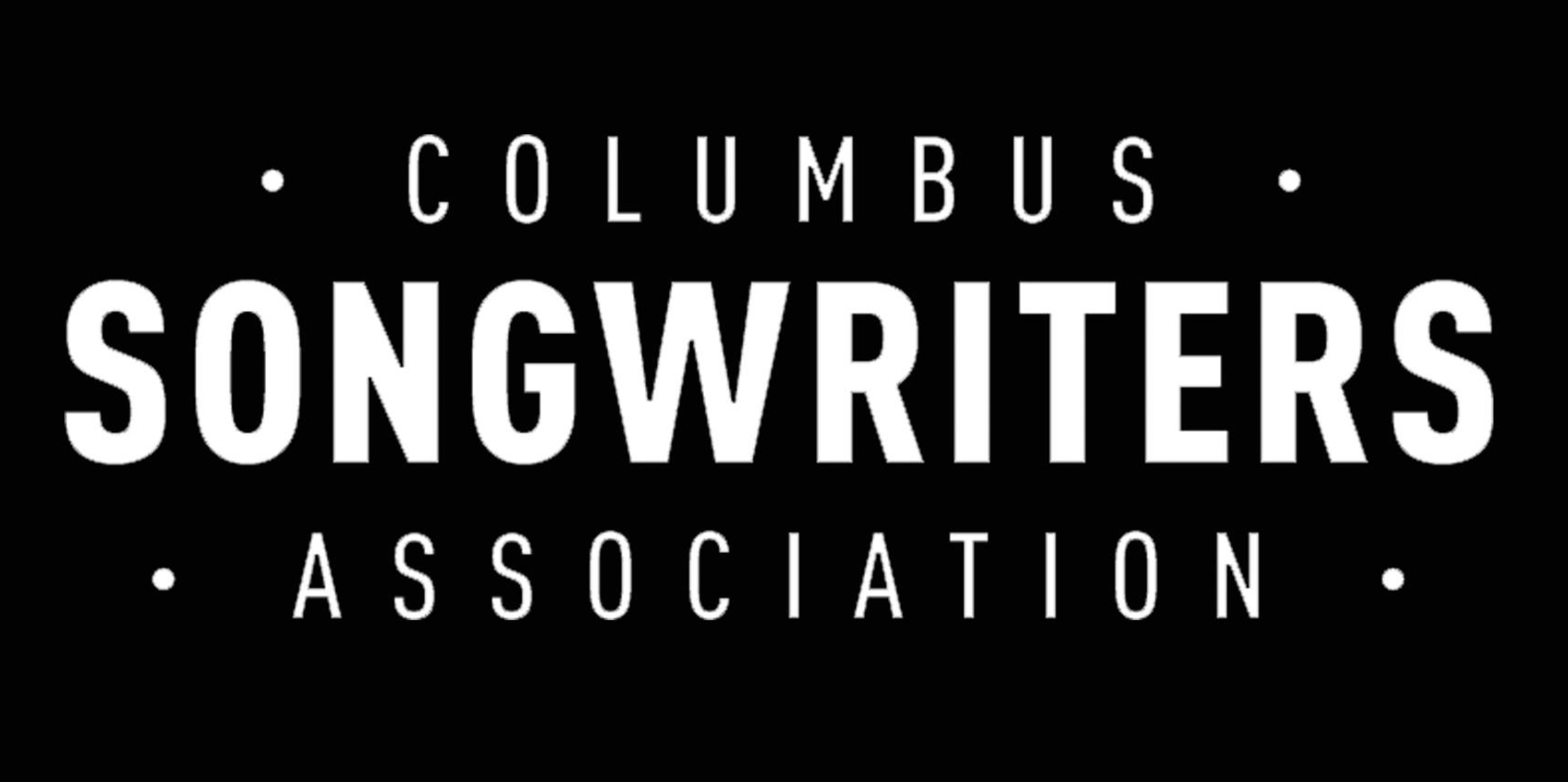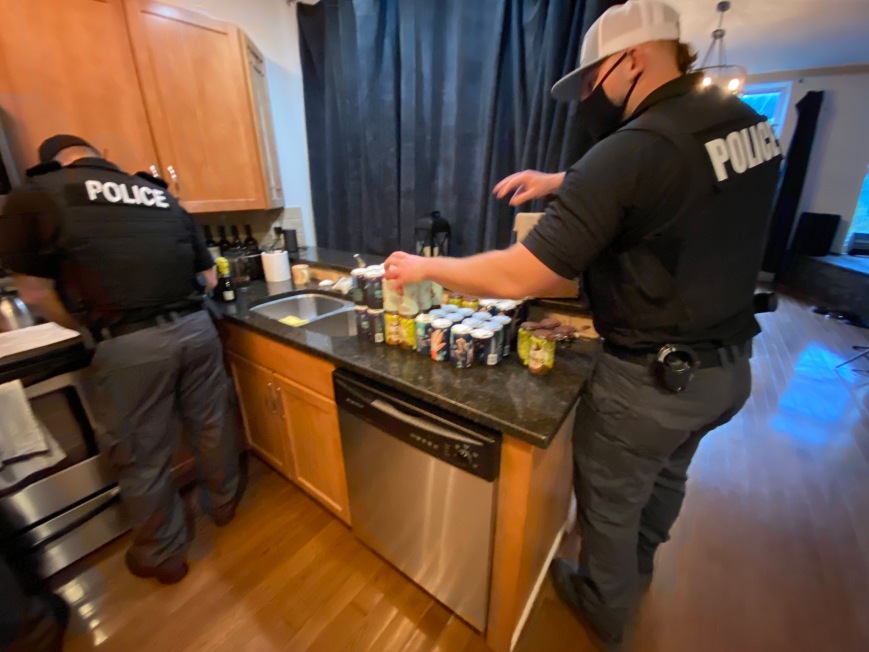Undercover Columbus Police officers target private performances, potentially threatening all informal gatherings with added scrutiny.
COLUMBUS, OHIO, October 3, 2020 — When Joey Hendrickson heard a knock at the door, it wasn’t unexpected or a cause for concern. The founder of The Parlor, an invitation-only series of house concerts shared among friends across social media, simply presumed the songwriter performing later that evening in his living room had just arrived a little early.
For those unfamiliar, The Parlor predates the pandemic, but seems like it was purpose built to support live music during troubled times. Inspired by the house show movement, stripped down performances for scaled down audiences provide musicians the opportunity to stay on stage amid the lingering safety concerns of stadium tours and crowded club gigs. Hosting local and national acts minus the costs and complexities of traditional venues, house shows offer the intimacy and authenticity that help emerging acts evolve and established ones reconnect with their humble origins.
But the series of knocks at the door grew more urgent, and ominous. Before Hendrickson could answer, police officers stormed through the back door of his downtown apartment as he stood startled and shirtless in his kitchen. What happened next could threaten the future of similar performances, perhaps every informal social gathering in Columbus.
“They almost broke down my front door, then six officers came through the back, up the stairs, into my living room and served me a search warrant,” recalled Hendrickson. Though the incident occurred last April, he’s still researching the charges months later. “I asked if I could take my dinner out of the oven and put a shirt on. They said, ‘We don’t even need to search this place. We just need to search downstairs.’”
Hendrickson’s studio on the top floor shares a stairwell with the identical apartment below, just the right size for a few dozen friends and family to occasionally gather and support live music. Like most house concerts, RSVPs provide a convenient means of donating directly to the musicians and ensure there are enough seats for the small audience. All proceeds go to the artists. Hosts offer their homes free of charge and promote the private performances. It’s not a charity, just an intimate setting unlike traditional venues.
House shows are hardly new. From front porches to backyards throughout the country, these impromptu performances aren’t the frat house fracas and reckless ruckus that rouse neighbors to revolt. In the case of The Parlor, neighbors gather on cozy couches around a corner stage — hardly worth a fuss, especially after years of quiet consideration of nearby residents and businesses, and a recent nomination for a Community Arts Innovation Award.
“They searched and didn’t find anything illegal. Then they went into my fridge and put cans of beer into a cardboard box,” Hendrickson noted. He immediately called his attorney, who worked close enough to arrive in minutes. The charges allege Hendrickson was selling alcohol, which he emphatically denied. “When friends and family come, they usually bring a beer or two. If they don’t have a beer, as host, I usually have some of my favorite craft beer from North High Brewing refrigerator.” As the officers continued to put beer into the box as ‘evidence’, two musicians for the evening’s show happened to arrive. “On the way out, one of the police officers actually said ‘Hi’ to the local prominent songwriter, calling him by name.” The other musician, a saxophone player, told Hendrickson one of the officers apologized, saying “it was a nice place and he was just doing his job.”
Despite the tension and confusion leading up to the show, the concert proceeded that evening, absent any alcohol. Like most informal social gatherings, guests were invited to bring their own beverages to avoid such scrutiny. Everyone arrived as always at a local restaurant, then friends filed in through the front door of the apartment building. No one was underage. The group is still hip and young at heart, but most have graduated from the days of crowd surfing, standing on a concrete slab, and screaming for hours in front of a stage. In contrast, these house concerts start and end with small talk among a community of friends, most of whom first met through Hendrickson’s public music events across the city over the past decade. They have their own culture, but one that still welcomes fresh faces — in hindsight, perhaps too willingly.
The misdemeanor charges stem from an undercover officer who attended a house concert featuring an Ohio singer/songwriter and prominent drummer. Per preliminary testimony, the undercover officer didn’t bring his own beer and entered through the back door. Hendrickson, noticing a friend was empty-handed, asked him if he wanted a beer from the fridge, which was conflated as the sale of alcohol.
“After I read the police testimony, I realized an undercover officer came into the back door of my apartment building, uninvited, and pretended to be a friend of a friend. We had a warm, peaceful, loving environment in my living room. Now I feel the presence of that covert energy every day. It’s made me wonder why, how, and when police can invade a private home.”
During pre-trial, an offer was made to dismiss the “sale of alcohol” charges if Hendrickson would plead guilty to “keeping a place” with the intent to sell alcohol. That language is typically reserved to describe private clubs that operate illegally after bars are closed. But applying “keeper of a place” to early evening events where guests bring their own alcohol would potentially subject all house concert hosts to charges for the same offense. After dozens of letters to the prosecutor, and testifying before the Columbus City Council, Hendrickson and The Parlor community are headed to court later this year in a case that could have sweeping ramifications for any private social gathering.
If wedding guests bring a monetary gift to a reception with a live band where beer is served, does that constitute the sale of alcohol? What about graduation parties, birthdays, or bar mitzvahs? How about friends and family who gather every weekend to watch Ohio State football games? The next time you chip-in for a friend’s barbecue and someone asks for a beer out of the cooler, do you need to worry whether it’s an undercover cop?
The ongoing pandemic has revealed longstanding inequities at every level of society, from so-called “essential” workers to the inherent conflicts of interest between sincere public health concerns and the inability to earn a living. The arts have been especially hard hit, with many musicians working side gigs in industries that were also adversely affected by the closure of bars and restaurants, as well the cancellation of conferences and conventions where artists also perform.
Mounting frustration and economic desperation have contributed to sharp increases in property crime and violent crime. Neighborhoods already besieged have reached a boiling point, and even well-heeled enclaves like the Short North that were seemingly immune are suddenly plagued by robberies and shootings. The homicide rate in Columbus is on pace to surpass last year’s record high number of murders. With the familiar refrain from Columbus Police that they lack the necessary officers, time, and resources to address these escalations, why the sudden interest in a polite, invitation only living room concert, where everyone is of age, and no one filed a complaint?
Regardless of the suspicious series of coincidences, Hendrickson’s focus is on finding a positive solution. As a fellow musician whose founding role in both the Columbus Songwriters Association and Columbus Music Commission connects him with local thought leaders, this selective enforcement seems to contradict the city’s longstanding support for the creative community.
And though he isn’t one to call out names, more than a few leaders in the city have attended his house concerts. If there was anything unseemly, apparently no one noticed. Seeking clarification on how house concerts meet the definition of “keeping a place”, a representative of a city councilmember admitted he too had attended several house shows, and simply referred to the laws as a “gray area”.
The inevitable problem with legal ambiguity is selective enforcement. With elections looming, there’s no shortage of candidates fundraising in living rooms and backyards to build support for their campaigns. While accepting donations, if hosts offer guests a glass of wine, are they unwittingly selling alcohol as well?
“If there were a house concert permit available through Columbus Parks and Recreation similar to what other cities offer, I would have applied for it. There isn’t. Instead, we became a registered house concert host with a national organization that supports such shows two years ago,” Hendrickson explained. “The prospect of a house concert permit in Columbus could provide guidance for hosts and clarity for law enforcement. If city council were to sponsor policy that supports house concerts, it would reinforce our reputation as community where artists are welcome and set the stage for musicians who are looking for smaller spaces to perform.”
For details on The Parlor, follow @ParlorColumbus on Facebook. To schedule an interview with founder Joey Hendrickson, email Joey@ColumbusSongwriters.com


Published by